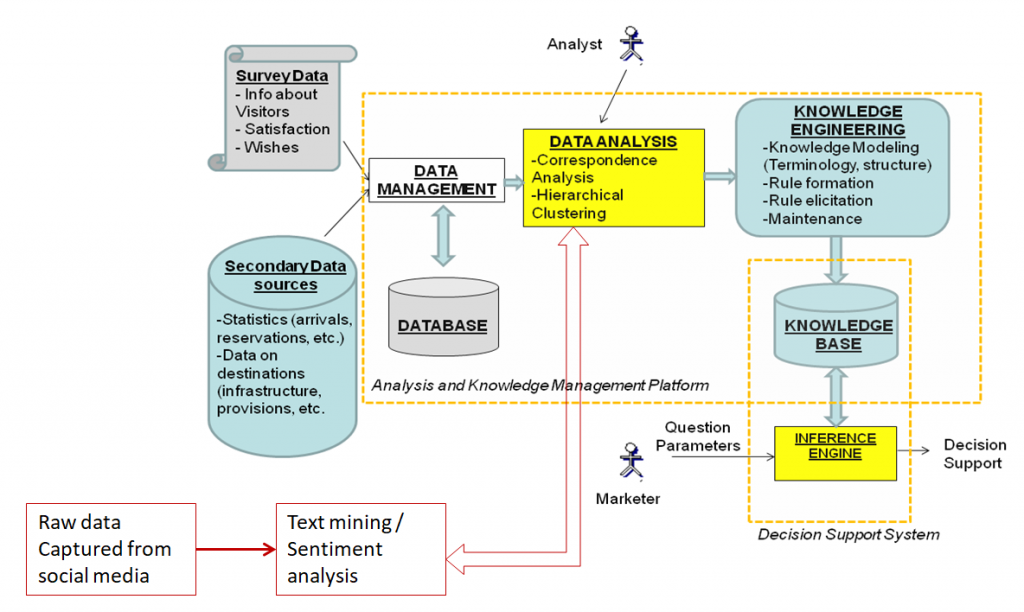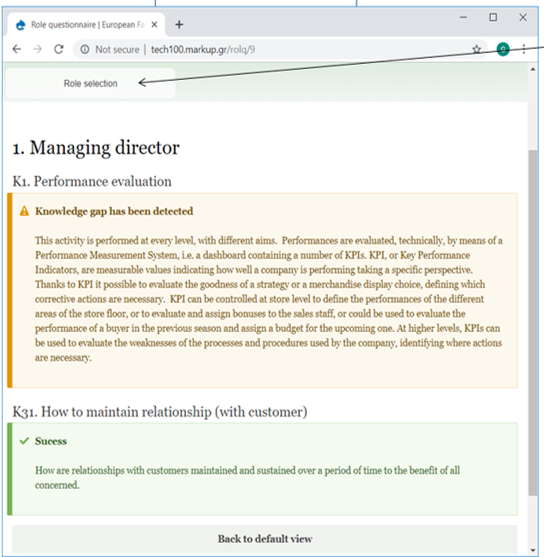The primary target of DABILab is to link research in the fields of management, marketing and social sciences with the field of data analysis and the rapidly evolving intelligent information technologies (Artificial Intelligence, machine learning and neuromarketing).
DABILab has inherited the experience and continues the work of the Lab of Data Analysis and Multimedia Applications, which was founded in the former Department of Marketing already in 2006, by Prof Dimitrios Karapistolis (now in retirement).
The Lab has particular experience in:
Statistical data analysis with methods from the family of Multidimensional Factor Analysis.
The main characteristics of the analysis methods are that they function exploratively, following the data without relying on a-priori models, and that their approach is holistic, discovering complex relations underlying in the entire studied phenomenon. Representative methods are Multiple Correspondence Analysis, multidimensional Hierarchical Clustering and the FACOR and VACOR algorithms. These methods are particularly suitable for studying trends, discovery of behavior profiles and finding the most important explaining factors in management and marketing. They are successfully applied in knowledge extraction from survey data and in general in multivariate problems, where qualitative concepts and complex non-linear relations are studied.
 Méthodes d’ Analyses des Données (MAD). In the lab of Data Analysis and Multimedia Applications, the specialised statistical software for multidimensional data analysis MAD has been developed. MAD is used for educational and research purposes in the Department of Organisation Management, Marketing and Tourism and is offered for use to collaborating institutes in Greece (e.g. Aristotle University of Thessaloniki, University of Western Macedonia, University of Macedonia). The MAD software is offered freely for use to the students of the Department and researchers and is subject to loyalty rights. Within the plans of DABILab is to develop a new cloud-based version of the program.
Méthodes d’ Analyses des Données (MAD). In the lab of Data Analysis and Multimedia Applications, the specialised statistical software for multidimensional data analysis MAD has been developed. MAD is used for educational and research purposes in the Department of Organisation Management, Marketing and Tourism and is offered for use to collaborating institutes in Greece (e.g. Aristotle University of Thessaloniki, University of Western Macedonia, University of Macedonia). The MAD software is offered freely for use to the students of the Department and researchers and is subject to loyalty rights. Within the plans of DABILab is to develop a new cloud-based version of the program.
Knowledge Modeling and Knowledge Engineering
DABILab has experience in Knowledge Modeling and electronic knowledge management using semantic web technologies, rule-based systems and neural networks. The knowledge extracted either with mining methods from big data or with statistical methods or is preexisting human knowledge, is coded as semantic knowledge in a form which is understandable by an inference engine and accumulated in a Knowledge Base, so that it can be exploited by an intelligent Decision Support System.

A Decision Support System for touristic destination management and marketing has been developed in the Lab following this approach , as a result of the research project DANKMAN. The system comprises a Knowledge Base with the results of an extensive primary survey on the tourism of the city of Thessaloniki, neural network and knowledge management components, capable of answering queries and running predefined scenarios for optimising the marketing of Thessaloniki as a touristic destination.
Interactive e-Learning platform
DABILab has developed an interactive web eLearning platform addressed to professionals who wish to develop their career. The system:
- Includes a Knowledge Model where all job roles in European fashion industry are coded, together with the related activities and the knowledge required by a professional.
- Includes learning resources and series of tests, so that through an original interactive evaluation process, is able to detect the knowledge gaps of a professional.
- Suggests to a candidate for a job position the additional knowledge he/she needs to acquire.
- Supports the diversity in culture and needs within different European countries.
- It has been developed for the European fashion industry but is expandable to other professional and scientific areas.

